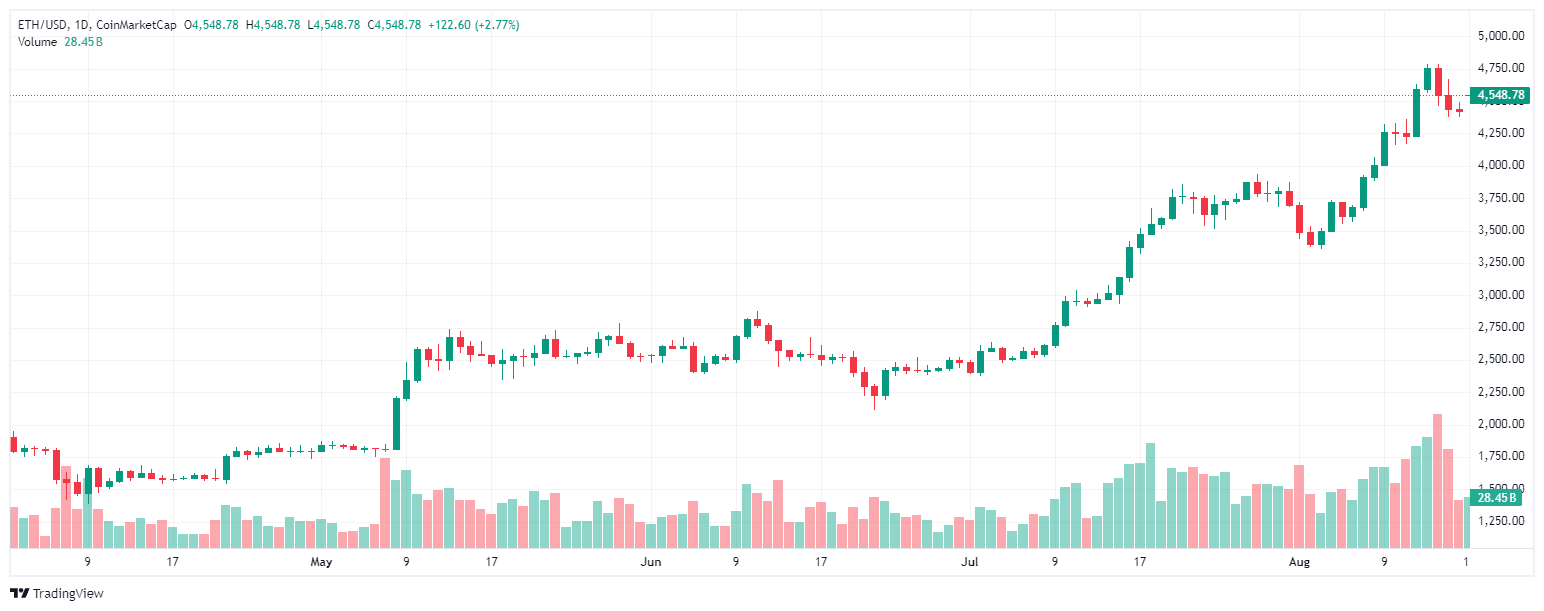Whether the Ethereum blockchain (ETH) is ready for the tokenization of real-world assets (RWA) has become a hot topic recently as experts point to security risks, concerns about stablecoins, and weak infrastructure.
Cryptocurrency advocate John Deaton cited Austin Campbell's warning on X (formerly Twitter), noting that these weaknesses could slow Ethereum's role in the rapidly growing tokenization market.
Concerns about security regarding Ethereum's infrastructure
Ethereum's role in the tokenization of real-world assets (RWA) is called into question following new concerns from industry experts.
Notably, on August 15, cryptocurrency attorney John E. Deaton shared Austin Campbell's comments.
Campbell is an assistant professor at New York University (NYU) Stern and the founder of the consulting firm Zero Knowledge Consulting. He warned that Ethereum may not be ready for large-scale RWA usage. According to the post, Campbell referenced the Bybit hack, during which $1.5 billion in ETH was stolen.
He argues that this incident highlights weaknesses in Ethereum's validator system and the limited measures that have been taken to address major exploits.
This raises doubts about whether Ethereum can manage the risks associated with large-scale tokenized asset issuance.
Additionally, Campbell also warned about risks with stablecoins like USDC and USDT, which are central to Ethereum.
Additionally, he stated that if the private keys of issuers are hacked, attackers could take control of smart contracts.
He warned that such a breach could impact the entire network, as most transactions rely on stablecoins for liquidity.
Nevertheless, Ethereum still leads the tokenization market, accounting for about 55% market share.
However, Campbell emphasizes that market size alone does not mean Ethereum is ready for broader adoption.
He also pointed to the Multichain hack, which Circle and Tether froze the stolen funds, as another example of existing risks.
John Deaton ignites a broader debate in the industry
In a separate post on X, John Deaton, known for his comments on legal issues in the crypto space, argued that these concerns should not be overlooked.
He cited Campbell's comments online and urged industry figures to respond. He mentioned Tom Lee, Joseph Lubin, Cathie Wood, and Ethereum co-founder Vitalik Buterin.
John Deaton noted that this discussion is timely, as major financial institutions are beginning to show interest in tokenization.
BlackRock CEO Larry Fink has repeatedly spoken about the potential of RWA.
Other industry leaders, such as Anthony Pompliano, Brad Garlinghouse, and Charles Hoskinson, have also raised this issue.
John Deaton also noted that some lawmakers, such as Senator Elizabeth Warren, still oppose digital assets.
He believes this makes open discussions about risks and security even more important for the crypto community.
Vitalik Buterin on treasury bonds and ecosystem growth
Vitalik Buterin, co-founder of Ethereum, also addressed related issues in an interview with the Bankless podcast.
He discussed how companies holding a portion of their reserves in ETH could provide investors with indirect access.
This approach has created new options for people to engage with Ethereum, potentially helping to strengthen the ecosystem.
Buterin acknowledged the risks associated with treasury companies. He even joked that the U.S. government is his 'favorite treasury company', referring to instances when the administration helped recover stolen ETH.
It's important to note that his comments indicate that balancing benefits and risks remains central to Ethereum's development.
Notably, while the debate about tokenization continues, Ethereum remains a leading name but faces scrutiny over its ability to handle broader adoption demands.
The questions raised by Campbell and highlighted by Deaton suggest that more work may be needed before Ethereum can fully support real assets on a global scale.
Meanwhile, at the time of writing, the price of ETH is trading at $4,548.
